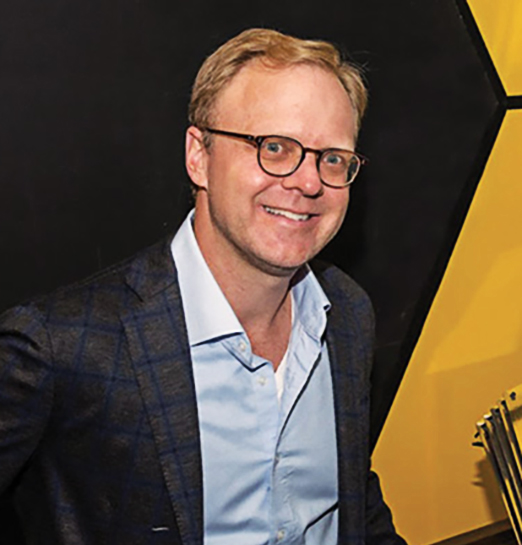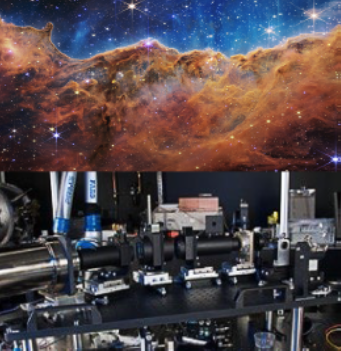
Michael W. McElwain
HWO Interim Deputy Senior Project Scientist, JWST Observatory Project Scientist, ExoSpec Principal Investigator, and Exoplanets and Stellar Astrophysics Laboratory Chief at NASA’s Goddard Space Flight Center, Astrophysics Division, Greenbelt, MD
Education
- Ph.D. (2007) • Astronomy & Astrophysics • University of California, Los Angeles
- M.S. (2003) • Astronomy & Astrophysics • University of California, Los Angeles
- B.A. (2001) • Physics • University of Pennsylvania
Current Position
- JWST Observatory Project Scientist and ExoSpec Principal
- Investigator at NASA’s Goddard Space Flight Center, Astrophysics Division, Greenbelt, MD
- Scientific technical leadership for the James Webb Space Telescope (JWST). Developing exoplanet spectroscopy technologies for Exo-Earth characterization on the Habitable Worlds Observatory (HWO).

Top image: A near infrared image of the Carina Nebula, also called the Cosmic Cliffs, taken with the James Webb Space Telescope (JWST). This image was one of the first JWST images to be released, which showcased the telescope’s performance. As JWST Observatory Project Scientist, Michael McElwain played a scientific leadership role in enabling this transformative observatory.
Bottom image: For Michael McElwain’s Roman Technology Fellowship project, he designed and built a prototype exoplanet spectroscopy integral field spectrograph. This instrument, called PISCES, is being used to demonstrate high contrast integral field spectroscopic techniques for future space-based direct imaging of exoplanets and circumstellar disks missions. A PISCES-like instrument is currently being used in the early Habitable Worlds Observatory designs, with the scientific goal of identifying signs of life, or biosignatures, in Earth-like exoplanets.
Technology Interests
- Integral field spectroscopy
- Photon-counting detectors
- Wavefront sensing and control
- Ultrastable structures
With applications for:
- Large space telescopes
- High contrast imaging coronagraphy
- Extreme precision doppler spectrometers
Goals and Aspirations
- Provide leadership for NASA Astrophysics large space telescopes that enable humanity to answer the biggest questions we have about the universe.
- Develop innovative technologies to discover, characterize, and search for life on ExoEarths.
- Mentor students and early career researchers to advance the next generation of instrumentalists.
- Foster a more inclusive environment within NASA and our scientific community.
